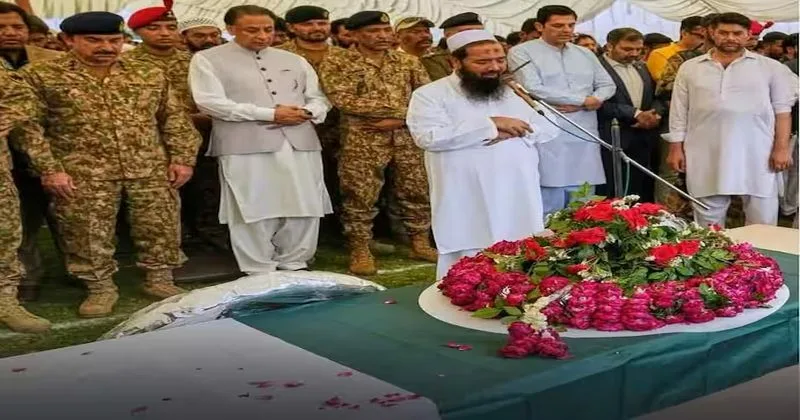
India has released the names of senior Pakistani military and police officials who attended the funeral of Lashkar-e-Taiba (LeT) commander Abdul Rauf, a terrorist designated globally by the U.S. Treasury. The funeral, held in Muridke, was attended by high-ranking Pakistani figures including Lt Gen Fayyaz Hussain, Major General Rao Imran, Brigadier Mohd Furqan, Punjab IG Usman Anwar, and politicians like Malik Sohaib Ahmed. This disclosure follows India’s Operation Sindoor, which targeted nine terror camps across Pakistan and Pakistan-occupied Jammu and Kashmir (PoJK), striking locations such as Muridke, Bahawalpur, and Gulpur.
According to the Ministry of Defence, 21 terrorist camps in Pakistan and PoJK have been identified and were part of India’s counter-terrorism focus. Several top terrorists were eliminated in the operation, including Khalid Abu Akasha, a LeT arms smuggler linked to Afghanistan and Muridke’s central command. Mudassir Khadian Khas, a close aide of Hafiz Mohammad Saeed and a key figure at the Muridke camp, was also neutralized. Others killed include Mohammad Hassan Khan, tied to the 2019 Pulwama attack and JeM’s POJK operations, and Hafiz Muhammad Jameel, Masood Azhar’s brother-in-law and a senior JeM leader based in Bahawalpur.
The operation also revealed Pakistan’s collateral damage in Poonch, where a Gurudwara and Madarasa were damaged. India showcased downed Pakistani drones in areas like Ramnagar and Naushera, underscoring its defence capabilities. Foreign Secretary Vikram Misri stated that the Pahalgam terror attack was the initial provocation by Pakistan, to which India responded with “controlled, precise, and measured” strikes. Rejecting any third-party mediation, India emphasized its preference for direct DGMO-level military dialogue. Operation Sindoor is now viewed as a new standard in India’s counter-terrorism approach.

Post Your Comments